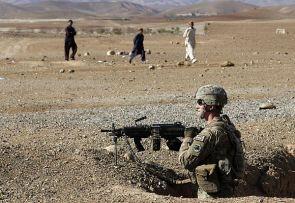 The White House on Friday said the "zero option" is not the preferred option for the United States with regard to troop presence in Afghanistan post 2014 and the number of soldiers to remain in the war-torn nation would depend on the core objective of the defeat of Al Qaeda.
The White House on Friday said the "zero option" is not the preferred option for the United States with regard to troop presence in Afghanistan post 2014 and the number of soldiers to remain in the war-torn nation would depend on the core objective of the defeat of Al Qaeda.
"I'm not saying that's the preferred option; I'm just saying to suggest otherwise would be to make assumptions about negotiations that have not reached a conclusion," White House Press Secretary Jay Carney told reporters at his daily news conference.
"We do have an enduring commitment to Afghanistan. And whether we have a residual force there or not, that commitment will continue. The commitment will continue through our Strategic Partnership Agreement, it will continue through a security relationship which will involve our efforts to continue to go after the remnants of Al Qaeda in the region and to help train and equip the Afghan security forces," Carney said in response to a question.
"The question of whether or not there's a residual US troop presence is something we have to negotiate with the Afghan government. We're not going to make a promise about a residual force if we haven't negotiated the circumstances of that with Afghanistan. So it has to be the case, as we've said as long back as far back as January, that one option is no troops," he insisted.
The so called "zero option" will end US military involvement in Afghanistan.
Carney said no decision has been made on the number of troops in Afghanistan post 2014 and it is not coming soon.
"We're talking about troop levels beyond the end of 2014, which is 18 months from now. We are in the process of further drawing down the troops that are in Afghanistan, roughly 60,000, currently, and we will be continually drawing those down as we hand over more and more responsibility for security to Afghan forces," he said.
US President Barack Obama, he said, will be discussing with his national security team the issue of a potential residual force post-2014.
"The range of options depends on a number of things," he said.
"The two policy objectives we have when it comes to a post-2014 security relationship have to do with continuing to counter the remnants of Al Qaeda and to continue to train and equip -- train and equip the Afghan National Security Forces.
The president will, with his team, examine our options in how we fulfill those policy objectives, working, of course, with the Afghan government in those discussions," he said.
"We have discussions going with the Afghans about a bilateral security agreement, we have a very important strategic partnership agreement that we continue to implement with them that has to do with our substantial commitment to Afghanistan and Afghanistan's future, including a strong civilian component," Carney said.
Image: A US army soldier takes position during a cooler storage utilisation assessment mission in Logar province of Afghanistan
Photograph: Reuters










